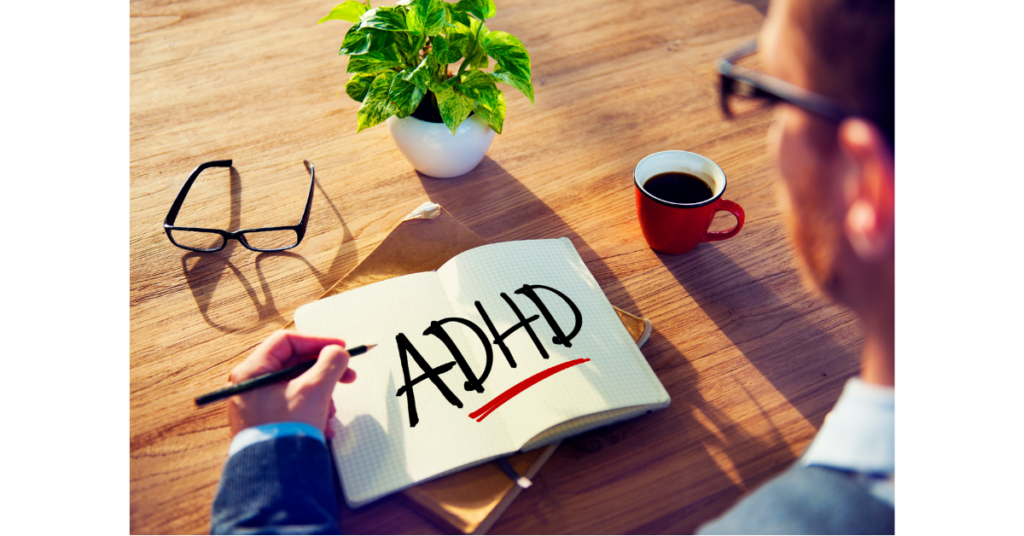Attention Deficit Disorder (ADD) / Attention Deficit Hyperactivity Disorder (ADHD) – Complementary Therapies that Can Help
What is ADD / ADHD?
ADD / ADHD is a neurodevelopmental condition characterised by persistent patterns of inattention, impulsivity, and hyperactivity. It is often diagnosed in childhood but can continue into adolescence and adulthood. ADD / ADHD encompasses three subtypes: Predominantly Inattentive Presentation), Predominantly Hyperactive-Impulsive Presentation, and Combined Presentation.
Symptoms
ADD / ADHD symptoms can vary widely among individuals and may include:
- Inattention: Difficulty focusing, making careless mistakes, forgetfulness, and disorganisation.
- Hyperactivity: Restlessness, fidgeting, and difficulty sitting still.
- Impulsivity: Acting without thinking, interrupting others, and difficulty waiting one’s turn.
- Impaired social skills, including difficulty making and maintaining friendships.
- Emotional dysregulation, mood swings, and irritability.
Causes
The exact cause of ADD / ADHD is not fully understood, but it is believed to result from a combination of genetic, environmental, epigenetic, and neurological factors. Research suggests that factors such as genetics, prenatal exposure to tobacco smoke, premature birth, low birth weight, and environmental toxins may contribute to its development.
Complementary Advice
Consulting with a qualified mental health professional, such as a psychiatrist, psychologist, or paediatrician, is crucial for an accurate diagnosis and appropriate treatment plan for ADD / ADHD. However, it is important to remember that there are many lifestyle factors that can make a real difference to people with ADD / ADHD. Always consult with a qualified CMA Member who specialises in this condition.
Diet
While dietary factors can influence behaviour in some individuals, the relationship between diet and ADD / ADHD is complex and varies among individuals. There is no one-size-fits-all dietary approach for managing ADD / ADHD. Some dietary considerations include:
- Food Additives: Some individuals with ADD / ADHD may be sensitive to certain food additives, but this varies. It can be helpful to monitor and, if necessary, eliminate additives from the diet.
- Sugar: While sugar does not directly cause ADD / ADHD, some people may experience increased hyperactivity after consuming sugary foods. It’s advisable to limit excessive sugar intake for overall health.
- Healthy Eating: A balanced diet rich in fruits, vegetables, whole grains, lean proteins, and omega-3 fatty acids can support overall brain health and may benefit individuals with ADD / ADHD.
- Individualised Approach: Consult with a healthcare professional or registered dietitian to develop a dietary plan tailored to an individual’s specific needs and sensitivities.
Nutritional Supplements
Consult with a healthcare professional before taking any nutritional supplements, as they can interact with medications and vary in effectiveness. Some supplements that have been explored for ADD / ADHD management include:
- Omega-3 Fatty Acids: These may have benefit in some individuals with ADD / ADHD. It is best to utilise plant sources of these to avoid issues with heavy metal and other chemical toxicity – search for ‘vegan Omega 3s’.
- Magnesium: Some individuals with ADD / ADHD may have magnesium deficiencies. Supplementation should be done under the guidance of a healthcare provider.
- B Vitamins: Adequate B vitamins, including B6, are important for brain function, but supplementation should be approached cautiously and only under professional supervision.
Herbs
Herbal remedies for ADD / ADHD should be used under the guidance of a qualified healthcare practitioner. Some herbs that have been suggested for managing ADD / ADHD symptoms include:
- Valerian Root: It may have calming effects and can be taken as directed by a healthcare professional.
- Other Herbs: Catnip, chamomile, lobelia, passionflower, and thyme are mentioned as having potential benefits for hyperactivity, but individual responses can vary, and consultation with a qualified practitioner is recommended.
Further Information
Diagnostic assessment by a healthcare professional is essential for accurate diagnosis and treatment planning for ADD / ADHD. Hair analysis testing for heavy metal exposure is not a standard diagnostic method for ADD / ADHD and should not replace clinical evaluation.
References
- ADHD Institute. (2022). Understanding ADHD.
- National Institute of Mental Health. (2021). Attention-Deficit/Hyperactivity Disorder (ADHD).
- American Psychiatric Association. (2013). Diagnostic and Statistical Manual of Mental Disorders (5th ed.).
- Centers for Disease Control and Prevention. (2021). Data and Statistics about ADHD.
- National Institute on Drug Abuse. (2021). DrugFacts: Prescription Stimulants.
- Pelsser, L M J et al. (2011). A Randomized Controlled Trial into the Effects of Food on ADHD. European Child and Adolescent Psychiatry, 20(9), 441-47. 7. Bloch M H & Qawasmi A. (2011). Omega-3 Fatty Acid Supplementation for the Treatment of Children With Attention Deficit/Hyperactivity Disorder Symptomatology: Systematic Review and Meta-Analysis. Journal of the American Academy of Child and Adolescent Psychiatry, 50(10), 991-1000.

